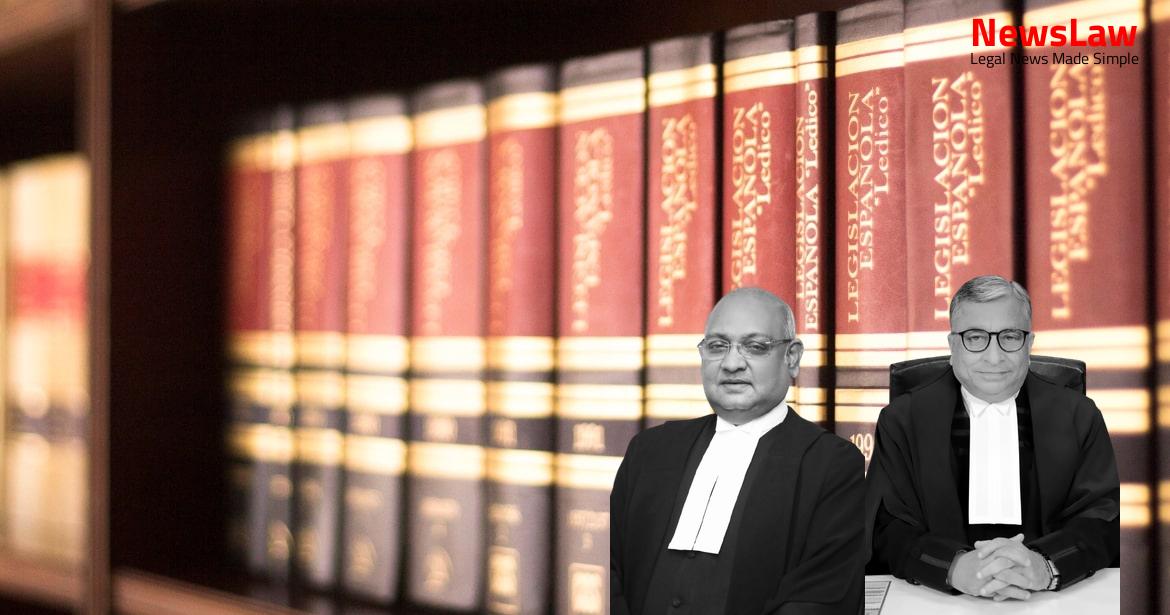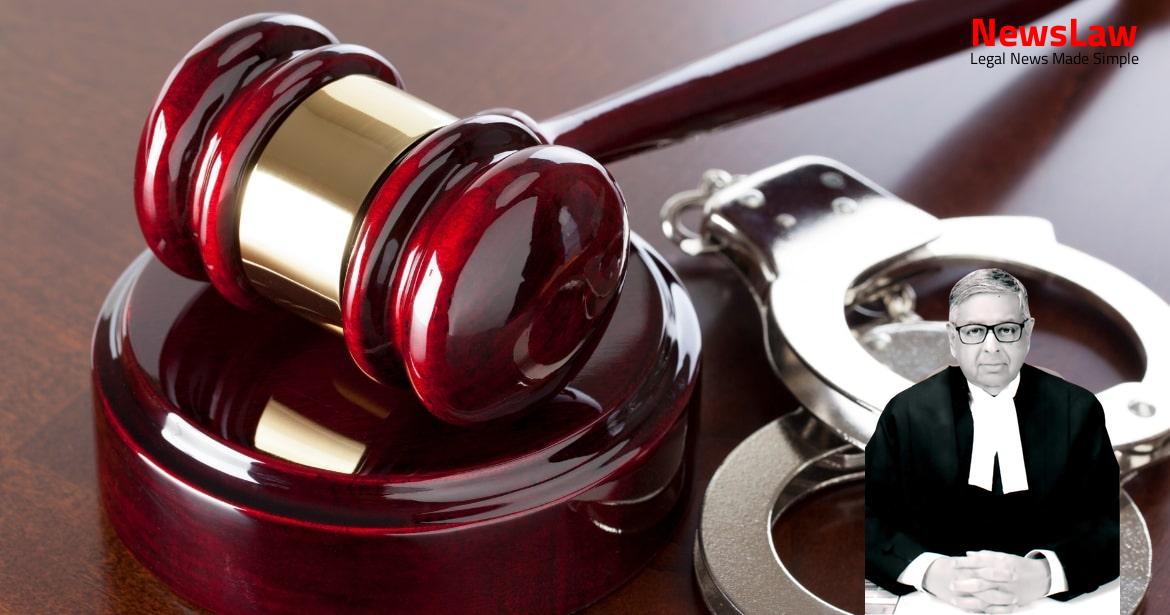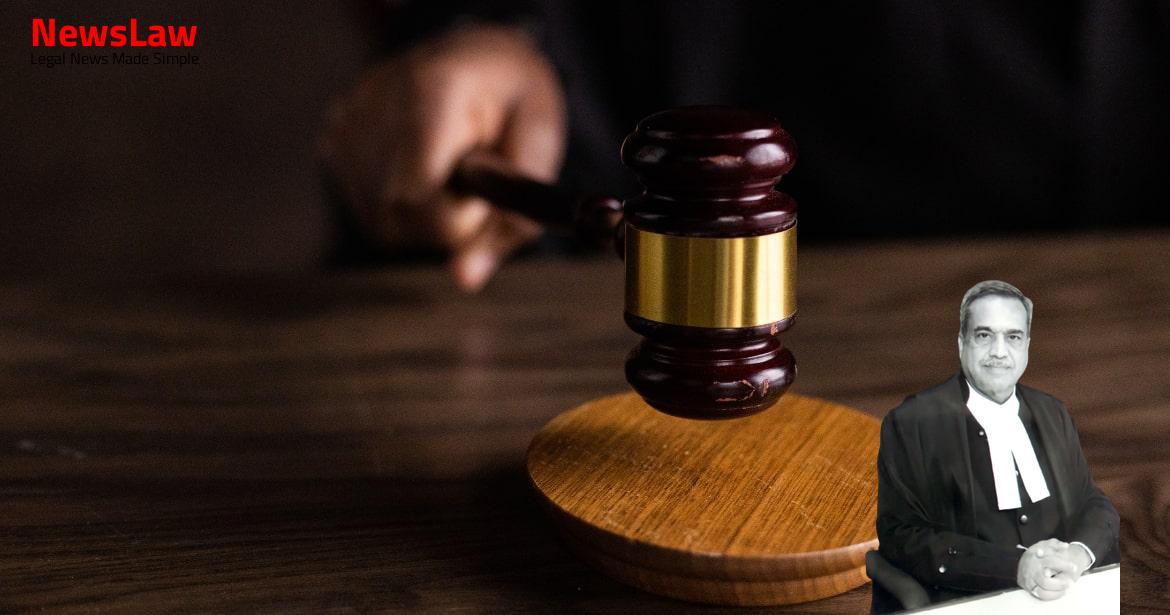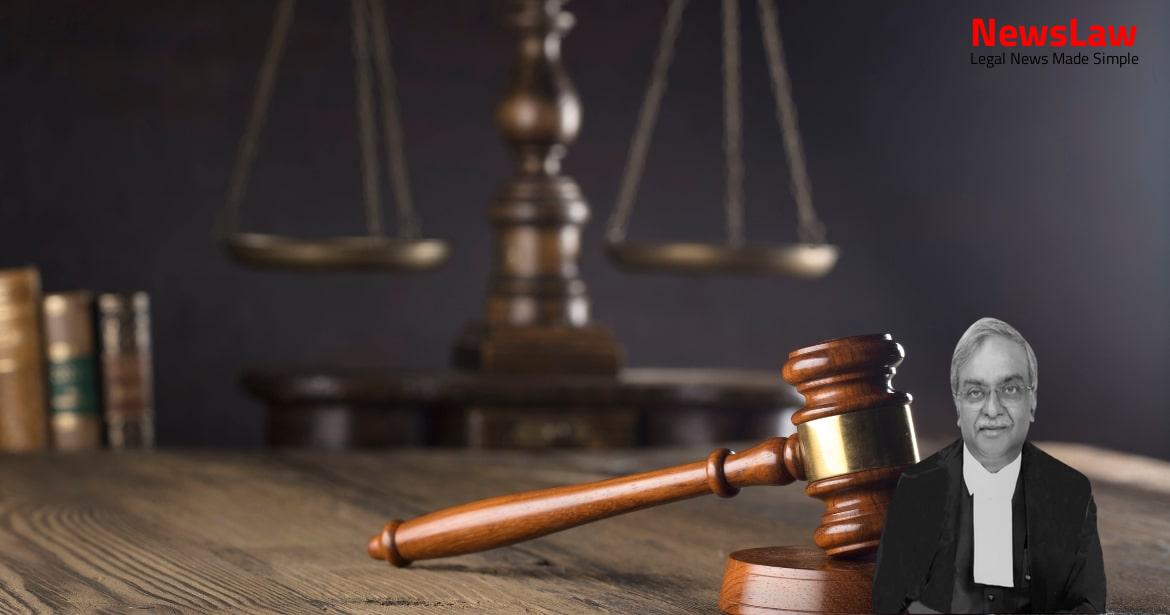Dive into the intricacies of the Court’s analysis of criminal appeals, focusing on the scope and limitations of interference. The Court’s nuanced approach to assessing evidence, avoiding regular appellate functions, and the rare instances where intervention is warranted. Discover the key principles guiding the Court’s discretion to prevent injustice and uphold the rule of law.
Facts
- The appellant was convicted under Section 302 IPC and sentenced to life in prison.
- The appellant fled from the spot upon seeing eyewitnesses PW-1 to 4.
- PW-8 and PW-9 conducted an inquest, examined eyewitnesses, and arrested the appellant.
- Charges under Section 302 IPC were framed on 26.12.2007, and the appellant pleaded not guilty.
- The prosecution presented nine witnesses while the defense did not provide any evidence.
- The Trial Court found the appellant guilty after analyzing prosecution witness statements.
- The High Court upheld the Trial Court’s decision, stating that the prosecution had proven the guilt beyond a reasonable doubt.
- Incident involved the appellant armed with a knife, sprinkling chili powder into the eyes of the deceased, and stabbing him on the chest and abdomen.
- The deceased was taken to the Government Hospital Amaravathi where he was declared dead.
Also Read: Assessment of Loss of Earning Capacity in Motor Accident Claim
Arguments
- Presence of eyewitnesses in the place of occurrence is doubtful and incredible.
- Eyewitnesses unable to describe the weapon of the offence, even though appellant was apprehended by the crowd.
- Weapon (knife) alleged to have been used was not seized by the police, which is fatal to prosecution’s case.
- Inquest report only shows suspicion due to previous enmity, not actual witnessing of the incident.
- Failure to examine the scribe of the FIR and delay in sending the FIR to court noted.
- Appellant’s serious leg injury and invalidity for six months raises doubts on theory of him running away.
- Article 136 of the Constitution of India is an extraordinary jurisdiction exercised by the Court when entertaining an appeal by special leave.
- The wide terms of Article 136 confer powers that are not restricted by technical hurdles.
- The exceptional power of Article 136 is to be sparingly exercised and only in the interest of justice.
- Mr. Mahfooz A. Nazki, Counsel for the Respondent State, supported the conviction and sentencing of the Appellant citing the consistent and reliable testimonies of four eye-witnesses.
- The conviction was upheld by the Trial Court and the High Court after thorough evidence appreciation.
- No grounds for reversal of conviction were presented.
- The conviction was based on consistent and reliable witness testimonies.
Also Read: Enhancement of Compensation in Workmen’s Compensation Act Case
Analysis
- The Court has the power to interfere to prevent grave miscarriage of justice caused by misapprehension or misreading of evidence.
- Interference by the Court is rare and exceptional, only in cases of manifest illegality.
- The Court does not function as a regular Court of Appeal in every criminal case.
- Appellate Court does not reevaluate evidence like a trial court.
- Contradictions in material particulars can discredit witness testimonies.
- Appellant stabbed deceased due to grudge over unpaid medical expenses.
- Appellant’s contentions weak regarding testimonies of prosecution witnesses.
- Minor contradictions in testimonies do not discredit witnesses.
- Court does not reappreciate evidence to question concurrent findings of fact.
- Assessment by Trial Court and High Court can only be interfered with if vitiated by errors.
- The principles governing the interference by the Court in a criminal appeal by way of special leave were enumerated in Dalbir Kaur & Ors. Vs. State of Punjab.
- The Court will not normally enter into a reappraisal or review of the evidence unless there is an error of law or procedure or inconsistencies in the evidence.
- The Court will interfere where the High Court has disregarded judicial processes, principles of natural justice, or acted in violation of mandatory provisions of law resulting in serious prejudice or injustice to the accused.
- Exceptional circumstances warrant interference where there is manifest illegality or grave miscarriage of justice.
- Interference is also permitted when wrong inferences of law are drawn or when the High Court conclusions are manifestly perverse based on no evidence.
- The scope and width of appeals under Article 136 have been elaborately articulated in Pappu Vs. State of Uttar Pradesh.
- Interference by the Court is justified in case of grave miscarriage of justice due to misinterpretation of evidence or ignoring material evidence.
- The testimony of an eyewitness should be considered trustworthy and reliable if found to be so, despite insignificant contradictions.
- Direct evidence proves that the appellant attacked the deceased in broad daylight, with a clear motive due to previous enmity between the appellant and PW-1.
Also Read: Determining Compensation in Motor Accident Claim Cases: Legal Analysis
Decision
- The appeal was dismissed
- No further action was taken
- The decision of the lower court was upheld
Case Title: MEKALA SIVAIAH Vs. THE STATE OF ANDHRA PRADESH (2022 INSC 727)
Case Number: Crl.A. No.-002016-002016 / 2013



